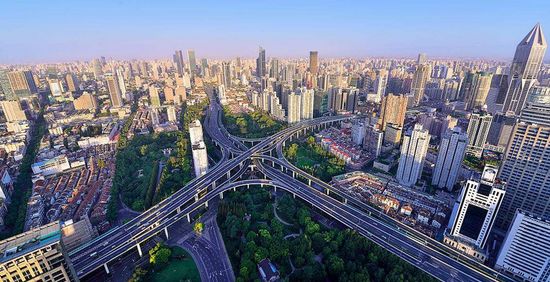
BEIJING, Aug.2(Xinhua) -- A key meeting has signaled that China will put more focus on maintaining the stability of the economy in the second half of this year amid external uncertainties.
China will keep its economy on a stable and healthy development track with proactive fiscal policies and prudent monetary policies in the second half, according to a meeting of the Political Bureau of the Communist Party of China (CPC) Central Committee on Tuesday.
With a robust growth of 6.8 percent for the Chinese economy in the first half, the policy tone set by the CPC meeting will make sure that the country achieves its annual growth target of around 6.5 percent, economists believe.
STABILITY: KEY THEME
China's economy maintained steady growth with good momentum in the first half. However, "the economy faces some new problems and challenges, and the external environment has changed notably," said a statement released after the meeting.
It said, "efforts should be made to keep employment, the financial sector, foreign trade, foreign and domestic investments, and expectations stable."
China's GDP growth has stayed within the range of 6.7 to 6.9 percent for 12 straight quarters. But a slight weakening was spotted in June in industrial output and investment, and worries have been on the rise that escalating trade tensions could bite into the economy in the future.
"The whole meeting sent a message that the country will move proactively to cope with changes. Stability will be the key policy tone and theme of the economic work in the second half," said Wang Jun, chief economist of the Zhongyuan Bank.
Policy makers have already announced a basket of pro-growth policies from targeted lending to tax breaks.
China's cabinet last week decided to roll out a 65-billion-yuan (nearly 10 billion U.S. dollars) tax cut to encourage businesses to spend more on R&D, on top of an initial goal of cutting taxes and fees by 1.1 trillion yuan this year.
Fiscal policy should play a bigger role in expanding domestic demand and structural adjustments, according to the CPC meeting. It also pledged to maintain control over the floodgates of monetary supply and keep liquidity at a reasonable and ample level.
REFORM: SOURCE OF VIGOR
While external pressure increases, the vitality of the market could be boosted by further domestic structural reform and opening up.
Supply-side structural reform should be pushed forward, according to the CPC meeting. Strengthening areas of weakness should be taken as an important task in the reform, it said.
Zhang Yansheng, the chief researcher with China Center for International Economic Exchanges, believes new investment demand should be formed in such "weak areas" as innovation, green development, and social welfare.
In reducing industrial capacity, another major front of the structural reform, "some deep-rooted problems should be solved, including disposing zombie firms and improving corporate efficiency," Wang said.
Li Zuojun, deputy director of the resources and environment policy institute of the Development Research Center of the State Council, highlighted reforms in areas including state-owned enterprises and land systems, which have both profound influence and quick effects.
Wang Hongju with the Chinese Academy of Social Sciences (CASS) called for more rapid implementation of opening up policies.
"Reforms in government services, property protection, market access, prices of production factors, and industrial policies will help China form new global competitiveness," he said.
SUPPORTIVE FINANCE, CURB ON PROPERTY
Policymakers aim to accomplish the dual-task of taming financial risks and promoting the sector to play a more significant role in bolstering the real economy, in particular, cash-hungry private and small businesses.
"China must better combine the task of forestalling and defusing financial risks with serving the real economy," according to the meeting.
Despite progress in risk control and deleveraging in the first half, the financing difficulties for private and small firms still lingered, and a reasonable liquidity level is needed, said Zeng Gang, a financial researcher with CASS.
Analysts believe more efforts are required to precisely channel the capital into weak areas and prevent it from turning into hot money for the home or equity markets.
Meanwhile, authorities showed firm resolve in regulating the property market. The CPC meeting said "rises in home prices should be firmly curbed," and that the establishment of a long-term mechanism to promote the stable and healthy development of the property market should be accelerated.
Housing prices in major Chinese cities were stable in June due to property controls. However, structural problems remained as several third- and fourth-tier cities have experienced price spikes since the year's start.
"The meeting demonstrated the central leadership's confidence and determination in resolving the problems in the property market," said Ni Pengfei with CASS.




 A single purchase
A single purchase









